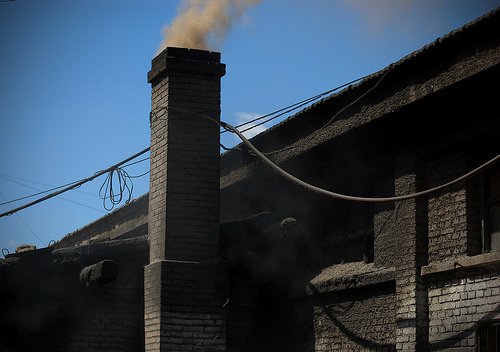Air Pollution in China and its Effects on Canada
Unfortunately improving air quality is a long-term project that doesn’t come without a hefty price tag. And there has been blame on Chinese authorities for not taking the problem seriously enough, which in turn has led to accusations that accurate levels of pollution have not been reported to the public, putting them at serious health risks.
What Does This Mean for Canadians?
It is easy to think of China’s smog-filled streets as a problem too far from our shores to truly impact our daily lives. Living in Canada, especially in cities close to the mountains and the ocean, it is hard to imagine having to stay indoors, or having to play outside with a mask on because of air quality. In fact, Canadians breathe easier than most people in the world, ranking third in an-air quality index released by the World Health Organization.
However, Canadian scientists are mounting an intercontinental effort to measure China’s impact on North America’s air quality. There has been a proposal to build a network of air-testing stations around the Pacific Rim, which would include one station atop Whistler Mountain in British Columbia.
Scientists worry pollution will drift eastward across the Pacific Ocean, reaching the West Coast and later the even more fragile Canadian Arctic. So far research has been limited but slowly, increasing amounts of trace pollutants and heavy metals are being detected. Recently, a cloud of industrial pollution caused by China’s factories was so large and dense it was visible to satellites.

Courtesy of timquijano
It is believed increased data will help environmentalists and scientists learn how to combat growing pollution risks at home and abroad. We are learning that pollutants can travel, and do not simply evaporate over time.
The Outlook
Unfortunately there may be more black days ahead, where pollution is measured as off the charts, before a visual improvement in China’s air quality will be seen and felt. But the publicity and public awareness this recent crisis has created can only help guide the country into taking bigger steps to improve their environmental standards.
The common desire is one of increased knowledge. Chinese people expect their government to continue to issue air quality index readings and better health warnings in a more timely manner. Ideally, the most basic solution for air pollution would be to end its root causes. This would require a movement away from coal and fossil fuels and replace them with clean, renewable energy.
It is wise to keep in mind that we all exist on the same planet, and though miles of ocean separate Canada and China, air pollution knows no boundaries.
Megan Gartrell is a writer/editor living in Victoria, B.C. Her passions include poetry, fiction, dance and music.































Share the post "Air Pollution in China and its Effects on Canada"